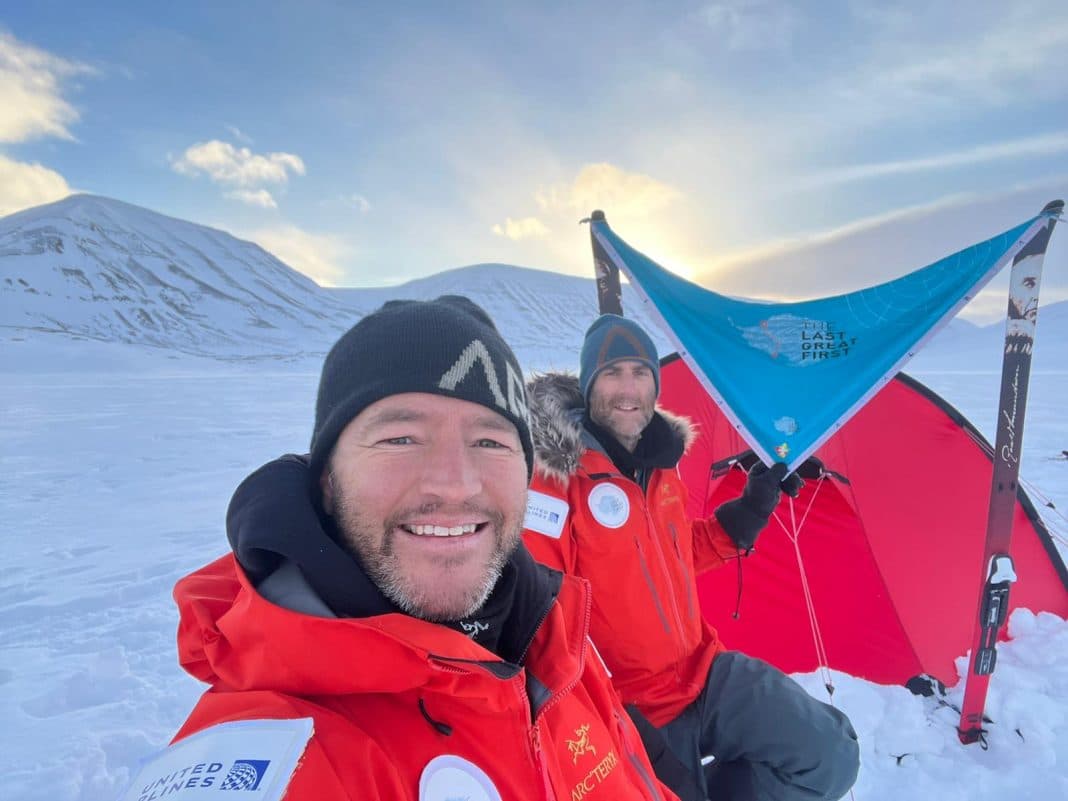One hundred and seven years ago, in 1915, an Anglo-Irish Antarctic explorer, Ernest Shackleton, captured the heart of nations during his disastrous yet inspiring trek across Antarctica, which displayed incredible feats of endurance.
After his aptly named ship, Endurance, became trapped in the ice, Shackleton and his 28-person crew and 68 dogs were left alone, stranded, in the harshest, most unforgiving landscape on the planet.
After five months surviving on just floating ice, Shackleton and his men eventually reached Elephant Island by a fortunate stroke of luck. Gathering five other men from his crew, they set off in a 22-foot boat in search of South Georgia, across one of the roughest seas in the world.
Fifteen days after leaving the Island, South Georgia was spotted, and the men crossed glaciers, mountains, and snowfields to reach the whaling station on the other side. The rest of the crew were rescued some months later by Shakleton, and remarkably, not a single one of his 22 men left on the ice had perished – every single person survived.
In October this year, Shakleton’s ‘Endurance’ Antarctic traverse will be attempted for only the second time in history, by two honourary Australian Scouts in their Last Great First Expedition.
Dr Gareth Andrews and Dr Richard Stephenson are gearing up for the adventure of a lifetime, trekking quite literally in the footsteps of arguably the greatest Antarctic explorer of all time.
Dr Andrews, 40, grew up amongst the wild mountains and beaches of the west coast of the Scotland Isles, and says it “set the scene for my future”.
He was introduced to the wonders of the natural world from a young age and has never stopped pushing the boundaries of the human body and spirit.
A consultant anesthetist at St Vincent’s Hospital in Sydney by day, polar explorer by night, Dr Andrew says it’s a “true honour” just attempting to finish Shackleton’s exploration dream.
“Antarctica is just wild and beautiful and empty and unexplored. There aren’t many places on Earth where you can say you truly are the first person to set foot there, and that’s true of Antarctica,” he said.
“We are very privileged to take on the journey of the crossing. It was conceived over 100 years ago, and since Shackleton, it still has not been completed. It’s a great journey, under human power alone, dragging everything you have for three and a half months, with just your mate standing next to you. It’s a very special journey.”
The journey involves crossing 2,600km in 110 days, beginning on the outer edge of the Ross Ice Shelf and finishing on the far side of Antarctica at Berkner Island.
If the two men succeed, they will be the first people to ever cross Antarctica unsupported on skis, breaking the record for the longest unsupported polar expedition.
“We’ll be all on our own, we’ll have no help dragging all our 200kg of supplies in the sled, and we’ll have no resupplies along the way. There’ll be no help, no dogs, no vehicles, and no other person for three and a half months,” Dr Andrews said.
“I’m equal parts nervous and excited. I think you’re allowed to be a bit nervous when you’re about to be the most isolated people on the planet in the most dangerous environment on the planet.”
The exploration duo has been adventuring together for around 10 years, since 2013. Dr Andrews shared with Canberra Daily his most memorable story with Dr Stephensen, while the two were exploring the North Pole.
“We were quite close to the north magnetic pole, and it was about 3am, and at that time of year it’s still light. We had a polar bear shuffling around our tent, literally just outside, and it was a nervous few hours,” Dr Andrews laughed.
“None of us were brave enough to stick our head out, but as it was Richard and my first time being in a quite dangerous situation, it’s one of those things that is stuck in your memory.”
When asked what adventuring means to him, Dr Andrews was quick to respond, evidently already knowing his answer.
“It means, in one word, freedom. When you have a serious adventure, it’s only your imagination that you’re limited by. You can really turn anything that seems impossible, possible,” he smiled.
“If you work hard, are dedicated and resilient, you can do whatever you set out to do, and that’s throughout life in general, too.”
The Last Great First Adventure is not without purpose though, as it’s part of Dr Andrews’ mission as an explorer to bring the threat of climate change to the forefront of people’s minds.
“We’re working with the Antarctic Science Foundation and Australian Antarctic Program to collect 110 days of critical climate data, that will allow us to understand more, and to build models to combat climate change into the future,” he said.
“Climate change is the single biggest threat to the planet, and lives, as we know it – the future generation, my children and their children. We have a real opportunity to get critical data to allow us to understand what is happening to our planet now.
“We get a chance to bring the climate crisis and what’s happening in Antarctica into the homes of people all over the world, and we can highlight the need to conserve this pristine and important environment.”
Dr Andrews and Dr Stephensen will return from the bottom of the globe at the end of February 2023 and said they are humbled to continue the legacy of Ernest Shackleton in the name of climate conservation.
Canberra Daily would love to hear from you about a story idea in the Canberra and surrounding region. Click here to submit a news tip.



